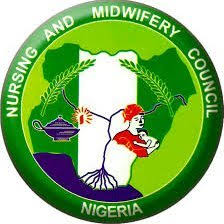The President, Pharmaceutical Society of Nigeria, Mr. Olumide Akintayo, in this interview with SAMUEL AWOYINFA, argues that the preferential treatment being given to medical doctors by the Federal Government in appointments and career development will continue to frustrate the development of the health sector
You have raised concerns about the constitution of the boards of Federal health institutions. Where exactly is the problem?
It has become necessary to draw attention to yet another in the series of unending and unlawful appointments of persons to the boards of federal health institutions and parastatals under the supervision of the Federal Ministry of Health.
Whereas the University Teaching Hospitals (Reconstitution of Boards, etc) Act, Cap. 463 LFN 2004 in Section 2 (1) provides inter-alia that “Each Board shall consist of a chairman who shall be appointed by the President on the recommendation of the Minister and the following other members, that is to say – (f) One representative of other professions in the health field, not being a staff of the hospital concerned,” it is our firm conviction that this statutory provision and a compelling need for the rule of law to prevail, dictates a strict compliance to mandatory provisions of this statute.
Our observation from the published list of the health ministry on Sunday, May 5, 2013 is that not one representative of pharmacists or other professions in the health field was listed as a member of any of the core teaching/specialist hospitals in Nigeria.
Ironically, the structuring of these boards has more than the statutory representatives of the Nigerian Medical Association to cater for the interest of the medical profession because it is the constituency of the leading bureaucrats at the Federal Ministry of Health. It is an embarrassment that one profession has over 250 representatives on these boards, when others have less than 20 put together in a supposed multi-disciplinary sector.
This situation smacks of favouritism and is certainly in bad taste. It is also important to submit that it would further exacerbate the entropy which has become common place in the health sector in Nigeria.
Which profession has over 250 representatives and which other professions in the health sector have less than 20 members in the board of federal health institutions?
Doctors have over 250, while pharmacists, laboratory scientists, nurses, radiographers and physiotherapists put together have less than 20.
In your argument, it seems the doctors are having the upper hand in government appointments, especially as ministers of health and in board appointments. Why do you think pharmacists are sidelined?
Let me make it abundantly clear, this is not about evoking sympathy for pharmacists. I made it clear to my colleagues when I was campaigning to lead this profession that we shall wipe out everything connected to a sanctimonious facade of piety which ravaged a section of the profession.
Our responsibility is to champion a reversal of the amplitudes of the various contraptions in the health sector to reflect the ambits of normative civility that pervades other climes. In apocalyptic terms, this situation is encouraged by the powers that be.
In the current dispensation at the Federal Ministry of Health, you have a situation whereby the two ministers belong to only one profession in a multi-disciplinary sector.
Our people say if you give a hoe to a mad man, the heaps he generates will weigh heavily towards his side of the divide. What adds salt to injury in this discourse is that persons placed on honourable templates have found it difficult to differentiate between their professional callings and duties as representatives of the Nigerian State. They have therefore been extremely reckless in violating relevant statutes.
How do you think the seeming rivalry between the doctors and pharmacists – could be resolved?
I have always posited on behalf of pharmacists that we are not interested in popularity contests with doctors. Our responsibilities are different and I believe we can both excel without hurting each other. A pharmacist who knows his worth is primus interpares (first among equals) anywhere in the comity of decent professionals. There can be no room for siege mentality or a persecution complex.
I was trained to compete with the best at the famous and pioneer pharmacy school in West Africa, that is the University of Ife (now Obafemi Awolowo University, Ife, Osun State) Pharmacy School. In our days, the entry point (via JAMB) for pharmacy was the highest in the entire university system in Ife. I am also compelled to say for the records that pharmacy ranks as one of the top five in the entry point of any university where it is offered in Nigeria. I think a practitioner of such a profession has earned honour and should be respected.
Is the rivalry not affecting effective health care delivery in the country?
Nigeria’s healthcare delivery will continue to be a sham and an embarrassment. The worsening health indices will prevail for as long as we encourage impunity and pettiness which the rivalry you talked about breeds. The militating bane in health care is that we do not allow the best to handle our endeavours because professional privileges have been reserved for one profession through many of the existing statutes, albeit unconstitutionally, because the 1999 Constitution forbids legislating against privileges that can be enjoyed by a citizen of the Federal Republic of Nigeria.
Is there any meeting point between medicine and pharmacy?
Pharmacy and medicine meet as well as complement each other in every other place. It can be re-enacted in this country like it is globally, but I humbly declare that it will not be on the altar of the whimsical and capricious proclivities of any group of persons.
How is the National Drug Distribution Guideline impacting the health care system in the country?
There is no perfect law anywhere in the world. Statutes, policies and guidelines can only be impactful when properly managed by the requisite agencies of government.
The National Drug Distribution Guideline for us at PSN is a workable document that must be given a chance. Like I posited at the launch, it is one thing to come up with targets and objectives of a policy, it is another to actualise them. The National Drug Policy 2005, which is a creation of the Federal Government through the Federal Ministry of Health, DFID and WHO, is a failure because the powers that be at Federal Ministry of Health have been the most prominent adversaries of the document by negating the spirit of the various provisions. For instance, the document, in line with the PPA Cap 535 LFN is unambiguous about who and how procurement of drugs should be handled, but it suits the ego of these persons to hand over that function to non-professionals in the guise of the Procurement Act – a general legislation which, today, is made to supersede a specific Act of Parliament. The National Drug Distribution Guideline is an opportunity for new beginnings and fresh attitude in drug distribution, so all genuine stakeholders must be allowed to have a level playing ground to excel.
The Federal Executive Council recently rejected the Presidential Committee report on harmonisation in the health sector. What is the way forward?
The PSN has communicated its reaction to the appropriate quarters. For now we shall not posit albeit publicly in the media, at least in details. Permit me to however say that persons who have imbibed a culture of narcissism and currently celebrate their pyrrhic victory will meet their waterloo sooner than they expect. That report was designed to fail abinitio through the dangerous power play engendered in the committee.
I think the committee had 36 members out of which 19 belong to only one profession.
As usual since it was unduly skewed in favour of the “anointed” healthcare professionals they resolved not to authenticate the final report which redressed the injustice created by Olikoye Kuti since 1985. I must point out that the only reason it was possible to even publicly posit on these ills in healthcare was because the chairman of that committee was a retired high court judge.
The Federal Ministry of Health misled the Federal Executive Council to believe that the report was authenticated by a minority of the members, when in actual fact it was signed by representatives of all other professions in the health sector other than doctors. I do not have a problem with this manipulation, but I have a word for the schemers and plotters of destructive tendencies in healthcare in Nigeria – your time is up, it won’t last for much longer.
ABUJA: Training Schedule for Basic Life Support BLS, Pediatric Advanced Life Support (PALS), Advanced Cardiovascular Life Support ACLS, First Aid, CPR, AED
PORTHARCOURT: Training Schedule for Basic Life Support BLS, Pediatric Advanced Life Support (PALS), Advanced Cardiovascular Life Support ACLS, First Aid, CPR, AED
LAGOS: Training Schedule for Basic Life Support BLS, Pediatric Advanced Life Support (PALS), Advanced Cardiovascular Life Support ACLS, First Aid, CPR, AED
STOP paying for airtime and electricity, Let your phone pay its bills with ScreenT




